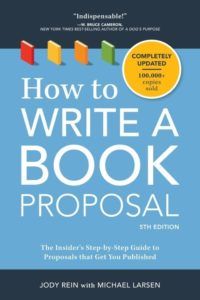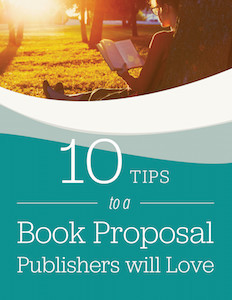
Today’s post was prompted by Maria who sent me this question: “Who do I send my proposal out to?” Agents? Publishers? Which ones? And how? Common questions with several nuances and steps.
If you’re new to publishing, how on earth do you figure out who to send your book proposal to? And who do you start with–agents or publishers?
Note: This article was updated June 2020 to include up-to-date information.
Do you send your book proposal to an agent or publisher?
If you’re interested in a trade press (larger markets, non-academic), particularly one of the larger publishers like Harper Collins, Random House, Hay House, etc., you’ll most likely need a literary agent. Yet, if your book is for a smaller, niche audience or academic audience, you may need to query publishers directly. If your market or platform is modest, there may not be enough potential advance and royalties to make the investment in time pay off for a literary agent. Yet, your book may have what a publisher is looking for.
Steps to Get a Literary Agent

Step 1: Write a Killer Book Proposal (I recommend Mike Larsen’s How to Write a Book Proposal–make sure it’s the most recent edition). You may well want to hire a book proposal coach or editor to make sure you write a compelling one.
Step 2: Identify Agents by:
a. Looking for books for a similar audience to yours and seeing who their agent was (check the acknowledgements section or search online. Publishers Marketplace offers information on book deals, including agent names and the size of the deal).
b. Searching AgentQuery.com
c. Attending writing conferences, particularly ones that have agent panels. The International Women’s Writing Guild has an excellent meet-the-agents panel at their Big Apple Conference each year. For those focusing on writing for health, wellness or medicine, Harvard Medical School’s CME publishing course has many top agents that you can meet in person and speak with in depth about your book and for advice. If they’re not the right agent, they may know of someone who is.
d. Working with a book proposal coach or editor who works with the type of agents you are looking for. They may be able to advise you or even introduce you to prospective agents, something I often do for my book proposal clients.
Step 3: Send a Great Query Letter to those agents you identified (or if you meet them in person and they request your proposal, you can skip this step). I recommend sending to 3-4 agents at first. That way, if you get feedback about the proposal, you can rewrite and send to new people on your list–so you haven’t eliminated all your top choices in your first try. Even experts sometimes find that their pitch is off and they need to rethink their book.
Step 4: Once an agent expresses interest, send your proposal. Make sure you send in the format they request on their website (e-mail or hard copy). Almost all proposals are by email nowadays. Your subject line should read something like, “Requested Book Proposal for __________” and in the email indicate something that will remind the agent about your book, such as title and where you met.
Step 5: Wait. You may contact the agent to make sure they received your proposal, but do not bug them.
How to Pick Your Literary Agent

If you get a yes, here are some questions to ask an agent so you can make a sound decision. If no, see if you can get some constructive feedback on why not. Incorporate the feedback to make your proposal (and/or book concept) stronger. Try several more agents. Keep at it. It often takes persistence. If you can afford it, I highly recommend hiring a book proposal coach–it will help you make your proposal that much better.
One more tip: often, if you’re getting no’s on a sound proposal, it can be that you need to develop a larger platform or reach–through blogging, podcasting, social media, online publicity, TV interviews, radio interviews, public speaking, offering webinars and other training. Ask agents if “platform” is the issue and then start working on it, if it is.

